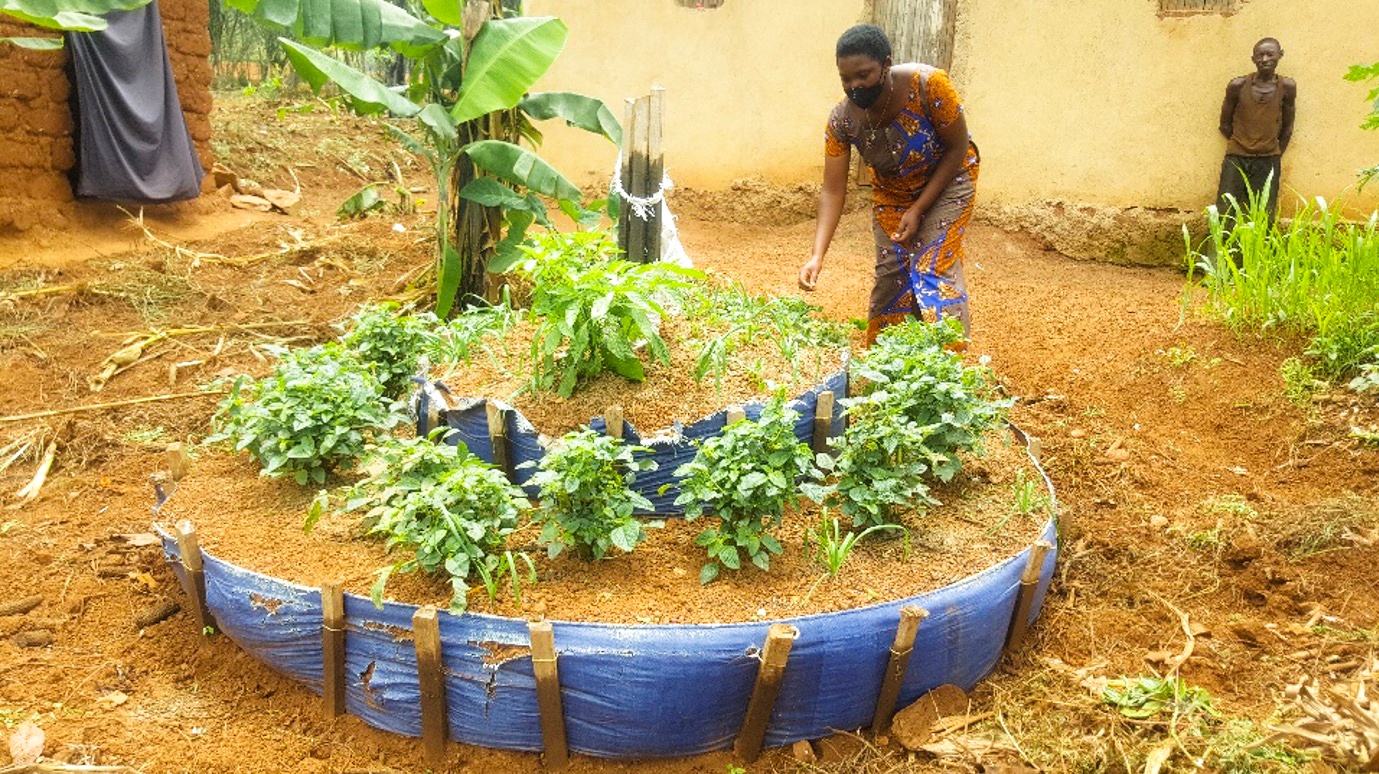Several hundreds of kitchen gardens have been created in Africa’s Rwanda with the assistance of Africa Development Promise (ADP) to address the issue of food shortage the country has been facing increasingly more since the pandemic hit. Kitchen gardens have been in the spotlight for some time now as a solution to the high rate of malnutrition among children in the country. Yet, with the ongoing pandemic, they proved to be a valuable tool to fight food insecurity and enhance people’s safety as well. The creation of more kitchen gardens in Rwanda managed to supply nutritious food to thousands of people, and was possible including due to a more flexible grant issuing approach. The non-profit Africa Development Promise shared with DevelopmentAid the story of how they addressed the issue in Rwanda and which lessons its team learnt.
‘We are hungry’
The Covid-19 pandemic created a range of challenges around the world, with families and communities in developing countries being the worst hit. Rwanda, a small landlocked country in Center-east Africa, was no exception as it faced an impending food emergency since many economic activities were paralysed along 2020. On 21 March 2020, Rwanda imposed a strict lockdown that led to the closure of restaurants, hotels, and schools and hence to the termination of a good deal of contracts for producers. The agricultural sector was strongly affected, including the cooperatives (unions of small-holder farmers, which secure their access to markets) which could not get their produce to market, buy inputs, let alone obtain lower prices for them. These were the concerns of women-led cooperatives working with the ADP, a non-profit organization whose mission is to improve lives and livelihoods of rural women in East Africa.
“In talking to cooperatives and trying to figure out how we could support them, first we were thinking of sending them masks and hand sanitizers…and they were like: ‘We are hungry’,” Monica LaBiche Brown, the Executive Director of Africa Development Promise, told Development Aid.
Hunger was on the rise because of the disruption in the value chain. The immediate reaction at that moment was to support families with cash remittances and hygiene kits. While looking at their work critically, ADP realized that there was something more that it could do in order to improve their approach to cooperatives, which in spite of success in their businesses weren’t prepared for times like pandemic.
“We were so focused on the business side of having cooperatives grow and become businesses that we didn’t look at the household level,” she stressed.
Unrestricting the funds
As the mission of ADP was to help its beneficiaries to develop their businesses, this U-Turn demanded a change in its grant policy. In order to use funds for something different than is stated in its mission, ADP had to face the challenge of restricted funds, which were reserved for specific purposes. However, with these unprecedented circumstances, ADP was able to work effectively with their funders. On one hand, ADP was able to unlock the funds for direct aid allowing people to buy food immediately during the lockdown and feed their families in Rwanda. On the other, the ERM foundation (Environmental Resources Management foundation) unrestricted theirs for the ‘covid response’ allowing ADP to advance with a long-lasting solution to food security.
“With Covid-19 we found that people have understood the need for at least a portion of the grant to be unrestricted so that we can address the things that need to be addressed,” shared Monica LaBiche Brown.
Kitchen gardens – a long-lasting solution
The organization mobilized its resources to seek possible solutions which not only would help cooperatives during the lockdown but would also make them more resilient in the face of possible challenges in the future. So, ADP decided to launch a project which could make cooperatives’ members both more food secure and nutritionally resilient.
The solution was to train them to develop their own kitchen gardens, gardens which are located near or within their household premises, containing diverse plants, highly nutritious and easily accessible, which is highly important in conditions of lockdown.
Kitchen gardens as part of larger home gardens (which include non-edible and ornamental plants) used to be common around the world but were progressively replaced with the larger agricultural production systems. These, however, remained an opportunity for many developing countries in Africa, Asia, and Latin America where, according to existing studies, these gardens offer numerous benefits to families and communities.

“The various social benefits that have emerged from kitchen gardening practices are health and nutrition, enhanced income, self-employment, food security within the household and community social life”, researchers say.
Thus, with the help of a local expert in agronomy, ADP organized a demonstration plot for trainings in the Bugesera District of Rwanda, where members of cooperatives were taught to create their own tiered kitchen gardens using permaculture practices. Permaculture, considered by some researchers as an agroecological movement ‘is a holistic design framework that incorporates sustainable agricultural practices’ and can contribute to ‘improved human health, increased resilience to environmental changes, reduction of input costs’ and overall improvement of rural livelihoods, as some studies in Zimbabwe and South Africa show.
By partnering with Empower Rwanda, a women-led local non-profit, ADP also trained the participants on the nutritional value of food, balanced diet, and organized cooking lessons on nutritional meals. As a result, with all the necessary inputs and assistance provided by ADP, 280 kitchen gardens have been created, guaranteeing families everyday meals which (according to the national government standard of an average five people per household) ensured food security for 1,400 people.
Kitchen gardens appear to be a solution many countries resorted to even before the pandemic e.g., Pakistan, India, Sri Lanka, as well as Rwanda. Some countries turned their attention to it last year. For instance, the Kenyan government launched a campaign to create 1 million kitchen gardens for families in both rural and urban areas as part of the National COVID-19 Nutrition and Healthy Diets Guidelines.
Thus, the ordeal of pandemic helped the ADP to identify weaknesses in their current approach and to mobilize its energy for a solution that helps to build resilience in community, and in particular, ensure food security.


